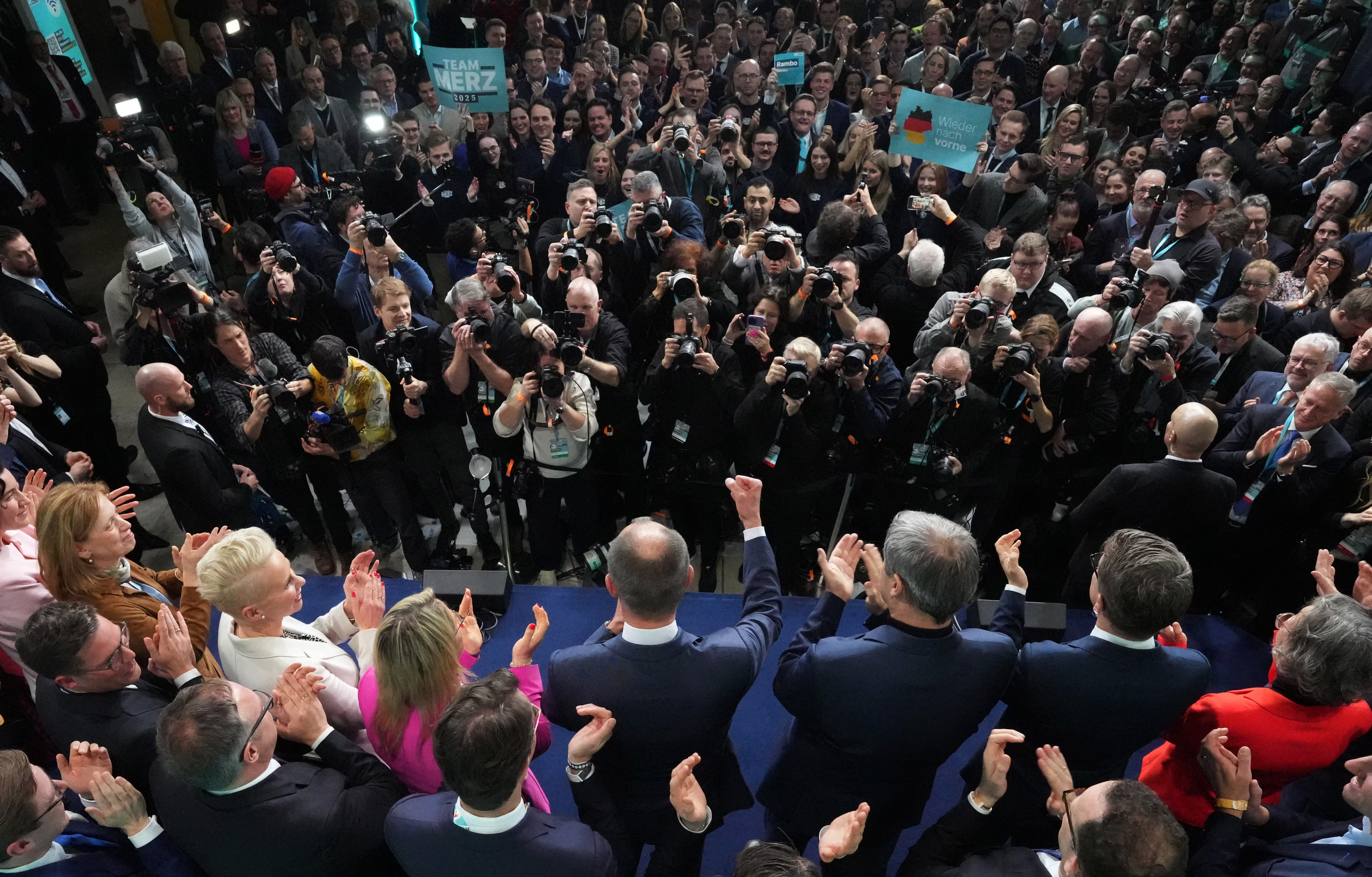Germany is bracing for a period of political uncertainty following the national elections, where the conservative CDU/CSU bloc emerged as the leading party but fell short of securing a clear path to forming a government.
With a highly fragmented political landscape and as many as seven parties potentially entering parliament, coalition negotiations are set to be complex and drawn out.
The conservatives, led by Friedrich Merz, secured just under 30% of the vote and now face the challenge of assembling a workable coalition.
A decisive factor in this process will be whether the pro-business Free Democrats (FDP) and the leftist Sahra Wagenknecht Bewegung (BSW) manage to cross the 5% threshold required to gain parliamentary representation. Their presence in the Bundestag could significantly influence coalition dynamics and government formation.

One of the most speculated outcomes has been a grand coalition between the CDU/CSU and Chancellor Olaf Scholz’s centre-left Social Democrats (SPD). This would not be unprecedented, as the two parties have governed together four times since World War II, including three times under former Chancellor Angela Merkel.
READ ALSO: Ethereum Fluctuates as Bybit’s ETH Reserves Rebound Following Lazarus Group Hack
However, early projections indicate that a CDU/CSU-SPD coalition would fall short of the 316-seat majority required to govern, reaching only 293 seats.
If the FDP and BSW fail to enter parliament, a grand coalition could become feasible. Despite their history of cooperation, fundamental policy differences remain, particularly in economic and tax policies.

While the CDU/CSU advocates for broad tax cuts, the SPD favors tax increases for high-income earners and a revival of the wealth tax.
These ideological gaps may make comprehensive reforms difficult, with potential compromises limited to issues such as easing the country’s strict debt brake. According to the Eurasia Group, this scenario holds a 60% probability.
Another possible, though less likely, coalition would be a three-way partnership between the CDU/CSU, SPD, and the Greens—often referred to as the “Kenya” coalition due to its alignment with the colors of the Kenyan flag.

This combination could achieve a stable majority with 374 seats if the FDP and BSW remain in the Bundestag. While the conservatives and the Greens share common ground on foreign policy—particularly regarding stronger support for Ukraine—they differ significantly on domestic issues such as migration.
Merz has been particularly critical of Green party leader Robert Habeck, dismissing him as a “failed” economy minister and ruling out any possibility of extending his tenure. The probability of this coalition materializing is estimated at just 10%.
Another three-party coalition under consideration is the so-called “Germany” coalition, which would unite the CDU/CSU, SPD, and FDP, reflecting the colors of the national flag. This coalition would achieve a slim majority with 326 seats but faces serious obstacles.

The FDP and SPD have historically struggled to find common ground, and a budget dispute between Scholz and FDP leader Christian Lindner, who previously served as finance minister, played a significant role in the collapse of Scholz’s previous coalition. Given these challenges, the likelihood of this coalition forming is also rated at 10%.
Some political voices are advocating for the possibility of a minority government, a scenario in which the governing party would have to seek support on an issue-by-issue basis.
While minority governments have functioned at the state level in Germany, they have never been initiated at the start of a federal legislative period due to concerns over instability. Merz himself suggested in a 2017 interview that this option should not be ruled out, though he has not commented on it recently.

Complicating matters further is the growing influence of the far-right Alternative for Germany (AfD), which secured 318 seats—enough to form a majority with the CDU/CSU.
However, all other parties have categorically ruled out forming a coalition with the AfD, effectively sidelining them from government formation. Their presence in parliament, however, remains a factor that could complicate coalition-building efforts and make securing a stable majority even more challenging.
As Germany faces the daunting task of assembling a functional government, the coming months are likely to be marked by intense negotiations and political maneuvering.
Discover more from Cine critique
Subscribe to get the latest posts sent to your email.

